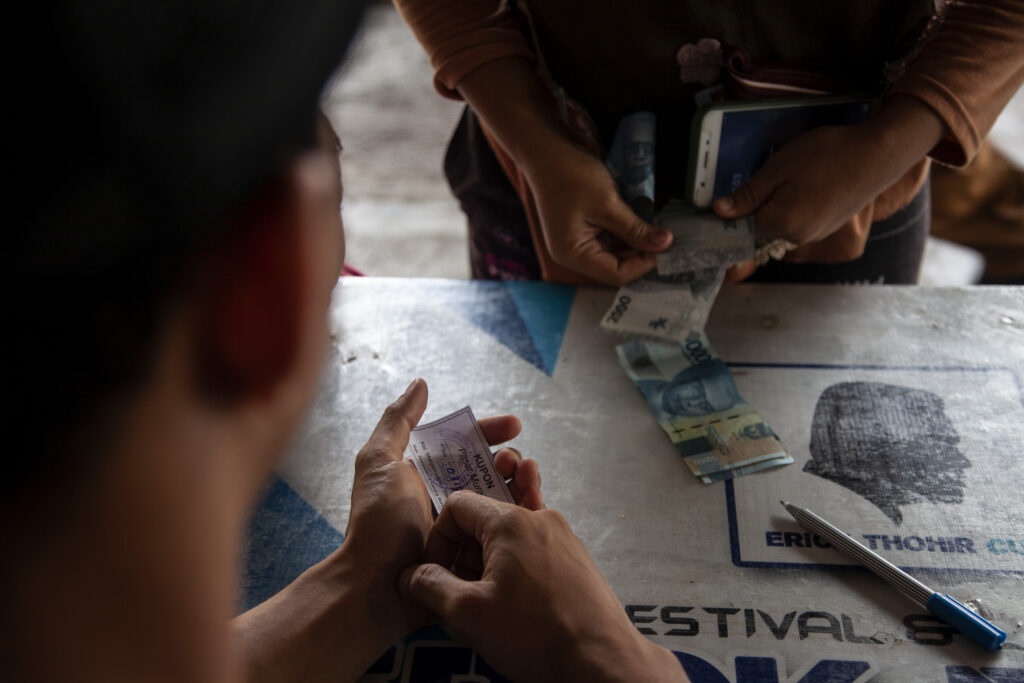The equitable allocation of intergovernmental transfers is a pillar of fiscal federalism and crucial in defining a country’s socioeconomic landscape. But political interests can influence these transfers, resulting in allocation biases.
Indonesia, known for its high level of decentralisation, relies primarily on intergovernmental transfers as the main revenue source for subnational governments, with little change in this dependency pattern two decades after the 2001 decentralisation ‘big bang’. The General Purpose Fund (Dana Alokasi Umum) remains the primary funding source for most local governments, despite its share of transfers decreasing from 65 per cent in 2001 to 40 per cent in 2021. As a formula-based transfer, General Purpose Fund transfers are more immune to political intervention.
On the other hand, the Special Purpose Fund (Dana Alokasi Khusus) seems more vulnerable to political interests. The Special Purpose Fund transitioned from a discretionary transfer in 2001 to a proposal-based transfer in 2017 with the goal of enhancing the allocation mechanism and improving public service delivery for local governments.
By 2021, the Special Purpose Fund constituted 13 per cent of subnational government revenue, a significant increase from its 1 per cent share in 2001. During President Joko ‘Jokowi’ Widodo’s first term, Special Purpose Fund transfers played a pivotal role, steadily growing to become an important source of local government revenue. Its allocation saw a substantial surge, skyrocketing from approximately 136,000 rupiah (US$8.68) per capita in 2014 to 1.62 million rupiah (US$103.46) in 2019. Adopting a proposal-based approach, the Special Purpose Fund allocation aims to implement a more targeted development strategy by allocating funds based on local government proposals.
But challenges emerge during the final allocation process when the Ministry of Finance and the parliament’s Budget Committee engage in discussions to reach a final allocation. This stage may be vulnerable to political influence, resulting in allocation biases.
The concern about potential biases in allocation is highlighted by 2017, 2018 and 2019 Audit Board of Indonesia reports, which consistently highlight allocation issues. During this period, the Audit Board of Indonesia identified problematic capital grant allocations totalling 31.2 trillion rupiah (US$1.99 billion).
Most of these problematic allocations fell into one of two categories. First, direct allocation requests made by parliament’s Budget Committee for the 2017 and 2018 budgets, amounting to 13.9 trillion rupiah (US$887.6 million) and 15.51 trillion rupiah (US$990.4 million) respectively, failed to comply with regulations. These requests lacked proper formulation and often originated from signed notes.
Second, the 2019 allocations exceeded what was proposed electronically by local governments. The introduction of electronic proposals changed the nature of these interventions, resulting in a significant decrease in problematic allocations to 1.8 trillion rupiah (US$114.9 million). A substantial portion of these problematic allocations stemmed from the Assigned Capital Grant program, accounting for 78 per cent, 57 per cent and 42 per cent of the total allocations in 2017, 2018 and 2019 respectively.
The political influence of the Budget Committee is a recurrent theme in the audit reports from 2017 to 2019. An analysis of the allocation patterns reveals a swing-voter bias where districts that the incumbent president lost narrowly in the 2014 election received 35 to 56 per cent more in capital grants, particularly in the health and agriculture sectors. This trend suggests that the president’s political interests may influence the distribution of proposal-based transfers.
The implementation of the new fiscal decentralisation law allows the president’s direction to be one of the main determinants in capital grant allocation. The persistence of political interests in capital grant allocation calls for stronger mechanisms to insulate grant allocation from short-term political interests. This can be achieved through enhanced transparency, stringent criteria for grant allocation and long-term planning of capital grants.
Currently, capital grant allocation occurs on a yearly basis, allowing local governments to submit proposals annually. While flexible, this approach is susceptible to short-term political influences. To address this, adopting a medium- to long-term planning strategy is important.
Such a strategy, possibly spanning three to five years, would align allocations with long-term developmental goals and enhance efficiency in proposal preparation and evaluation. Given the existing legal framework allowing presidential direction, implementing medium- to long-term planning could be facilitated through technical legislation like a government regulation (Peraturan Pemerintah), avoiding the need for new laws.
Medium to long-term planning fosters stable and predictable development, resilience to short-term political pressures and forces local governments to set priorities. Effective implementation involves three strategic steps — establishing clear, comprehensive national and local developmental goals, adopting transparent and objective criteria for proposal assessment, rooted in long-term developmental objectives and insulated from political bias, and ensuring transparency in allocation decisions, which may include involving civil society and the public in monitoring allocations.
Equitable intergovernmental transfer allocation is fundamental to Indonesia’s socioeconomic development. But political influences persist, particularly in the allocation of capital grants. It is imperative to address this issue by adopting medium- to long-term planning strategies and prioritising transparency in the allocation process.
Eko Sumando is an official within the Indonesian Ministry of Finance and a PhD candidate at the Crawford School of Public Policy, The Australian National University. The opinions expressed in this article are his own and do not represent the official stance of his institutions.


Good, informative read. Thanks. It will be interesting to see how this goes in the next administration. I suspect we all think what is likely to slowly creep into the system.